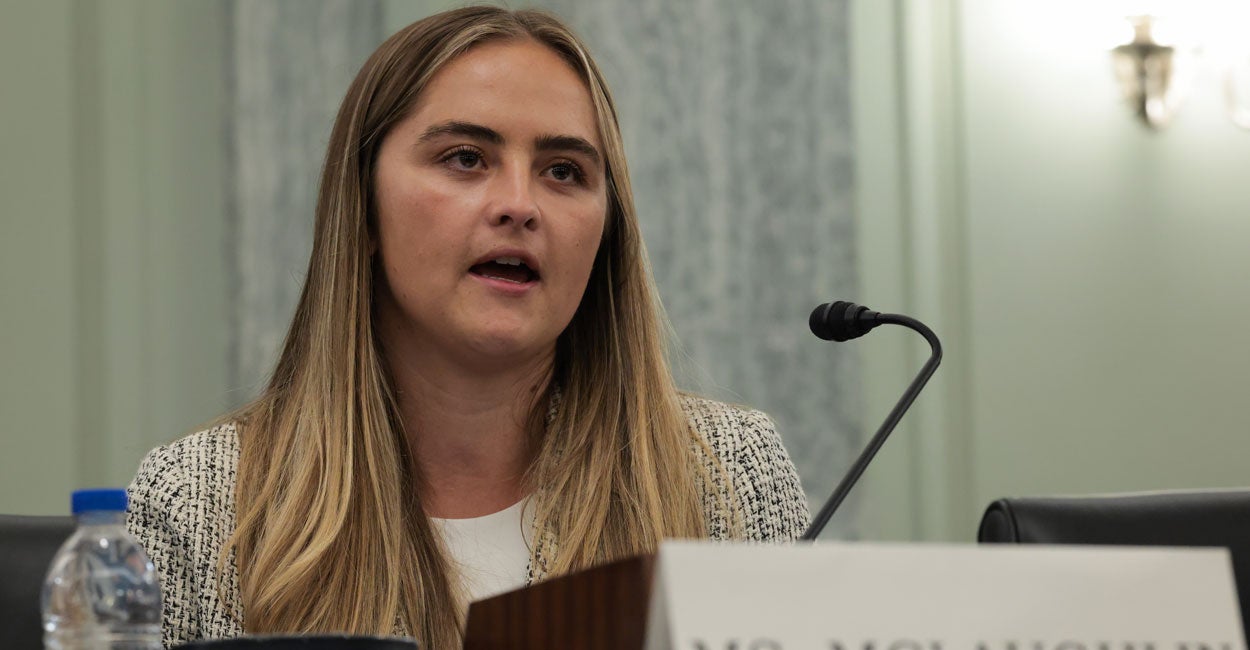Biden gave IRS $80 billion for its army, but Congress has revoked half


![]()

Congress rescinded tens of billions of dollars from a government agency in December that Republicans have long accused of being weaponized against taxpayers and corporations.
Lawmakers’ stopgap spending bill, signed into law by President Joe Biden on Dec. 20 to fund the government through March 2025, notably cut $20 billion in supplemental funding for the Internal Revenue Service (IRS). Republican lawmakers opposed Biden and congressional Democrats doling out $80 billion in supplemental funding to the IRS to bolster enforcement actions and the hiring of IRS agents in 2022, and have worked to claw back billions of this funding over the course of several spending bills.
WATCH: Billy Long, who Trump has just picked to lead the IRS, trolled Congress in 2011 by auctioning off the national debt. pic.twitter.com/nBubFFggd2
— Daily Caller (@DailyCaller) December 4, 2024
“I think it was very wise of Republicans to include that [$20 billion rescission in IRS funding] in the package,” John Kartch, vice president of communications at Americans for Tax Reform, told the Daily Caller News Foundation. “This is 20 billion we should never spend. By kicking it out, it means the Trump administration is never going to spend it.”
The rescission in IRS funding follows prior action from lawmakers in June 2023 and May to claw back parts of the $80 billion in supplemental funding shelled out to the IRS under Biden and Democratic lawmakers’ 2022 Inflation Reduction Act.
When Congress passes a stopgap funding bill, known as a continuing resolution (CR), existing policy from the previous fiscal year is written into the CR barring changes to the text from lawmakers.
In March, Biden signed the Further Consolidated Appropriations Act into law to fund the government for the remaining part of fiscal year 2024, which included the rescission of $20 billion in IRS funding to be repurposed to other nondefense programs, according to the IG report.
Because Congress did not strike language approving a commensurate funding cut in the December CR, existing policy as written in the fiscal year 2024 omnibus package requires the IRS to return another $20 billion in supplemental funding.
In June 2023, Biden signed the Fiscal Responsibility Act into law, which also included the rescission of nearly $1.4 billion in funding for the IRS.
These multiple rescissions in supplemental IRS funding amount to more than $40 billion, representing more than half of the $80 billion the Biden administration and Democratic lawmakers allocated to the IRS under the IRA, which Republican lawmakers did not support.
Republican lawmakers accused congressional Democrats and the Biden administration of wanting to hire nearly 90,000 IRS agents with the supplemental funding. The agency had more than 15,000 enforcement personnel as of June, according to a September Treasury Department inspector general (IG) report on the state of the IRS’ supplemental funding.
The IRS claims to have devoted a significant portion of the supplemental funding to beefing up the agency’s tax enforcement actions against high-income earners and large corporations, according to multiple White House statements.
In March 2023, Treasury Secretary Janet Yellan did not deny that more than 90% of IRS audits conducted with the supplemental funding would examine individuals making less than $400,000 annually, during testimony to the House Ways and Means Committee.
In November 2023, the IRS announced the agency is delaying new reporting requirements on commercial transactions through third-party payment apps including Cash App and Venmo.
Republican lawmakers previously attempted to rescind this IRS enforcement funding in January 2023 with the House passing rescission legislation in a party-line vote. The Senate, at Democratic Majority Leader Chuck Schumer’s direction, did not take up the bill.
House Republicans just voted unanimously to repeal the Democrats’ army of 87,000 IRS agents
This was our very first act of the new Congress, because government should work for you, not against you.
Promises made. Promises kept.
— Kevin McCarthy (@SpeakerMcCarthy) January 10, 2023
Some Democratic lawmakers raised alarms about another rescission in IRS funding within the December stopgap funding bill prior to the CR’s passage, but they still voted overwhelmingly in support of the CR.
Democratic lawmakers did not view the CR’s inclusion of language mandating a rescission of IRS supplemental funding as a dealbreaker because they recognized that voting for additional IRS funding is “political poison,” Kartch told the DCNF.
“Interestingly, the Democrats normally wouldn’t want to agree to do that, but they couldn’t fight that,” Kartch told the DCNF. “Bad enough they [Democratic lawmakers] voted once to increase money for the IRS, you’re really going to vote for it a second, third or fourth time?”
“They recognize this [additional IRS enforcement funding] as political poison and Republicans should be running against them for the next 20 years on this subject,” Kartch added.
White House press secretary Karine Jean-Pierre did not mention the IRS funding rescission in her statement on Dec. 20 expressing Biden’s support for the CR.
The IRS would likely conduct 2,000 fewer audits of corporations and 6,000 fewer audits of high-income earners over the next five years without the full enforcement money allocated to the IRS under the IRA, Deputy Treasury Secretary Wally Adeyamo told reporters in November.
Though President-elect Donald Trump has not explicitly said he will seek to cut the IRS’ budget during his second term, the incoming administration could look for ways to further slash the agency’s funding, including clawing back the remaining supplemental funding given to the IRS from the IRA.
“It [the $20 billion rescission] also reminds us to come back again and make it permanent, and to go for more of the 80 billion as a way to reduce the size and cost of government,” Karch told the DCNF.
The IRS has expended less than $7 billion in the supplemental funding allocated to the agency under the IRA, according to the IG report.
Trump nominated former Republican Missouri Rep. Billy Long to helm the IRS in the incoming administration on Dec. 4.
The IRS did not respond to the DCNF’s request for comment.
This story originally was published by the Daily Caller News Foundation.
Content created by The Daily Caller News Foundation is available without charge to any eligible news publisher that can provide a large audience. For licensing opportunities of our original content, please contact [email protected].
What's Your Reaction?
 Like
0
Like
0
 Dislike
0
Dislike
0
 Love
0
Love
0
 Funny
0
Funny
0
 Angry
0
Angry
0
 Sad
0
Sad
0
 Wow
0
Wow
0










































































